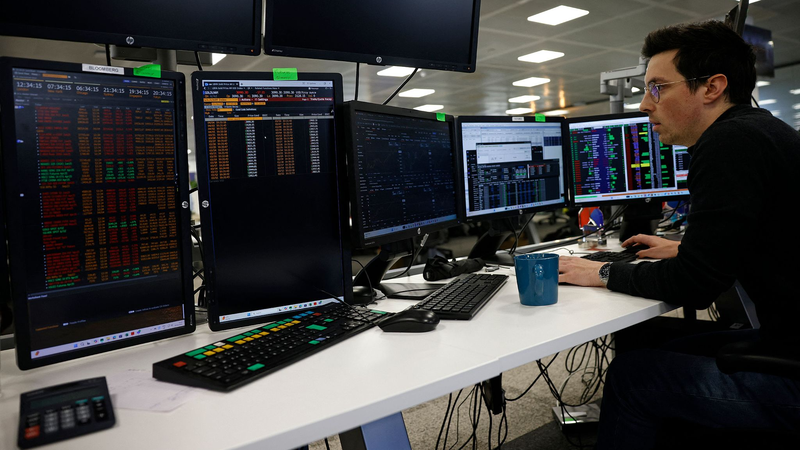Global financial markets were rocked Monday as U.S. President Donald Trump announced sweeping reciprocal tariffs, triggering a massive sell-off across continents. The dramatic move has sent shockwaves from Asia to Europe and Wall Street.
In Asia, market jitters were immediate. Japan's Nikkei 225 index plunged nearly 9 percent at one point before closing 7.83 percent lower, marking its worst single-day drop since August 2023. South Korea's KOSPI slid 5.57 percent—leading to a temporary trading halt—while Hong Kong's Hang Seng Index tumbled 13.2 percent at the close, recording its sharpest decline in three decades.
On the Chinese mainland, the Shanghai Composite fell 7.34 percent, with over 2,900 A-share stocks hitting their daily drop limit. The turmoil extended to the Taiwan region, where circuit breakers were activated as the benchmark index crashed 9.7 percent.
European markets were not spared either. The pan-European Stoxx 600 dropped 3.8 percent as trading unfolded across major exchanges. Germany's DAX eased 3.75 percent after an earlier plunge, France's CAC 40 fell 4 percent, and Britain's FTSE 100 slid 3.61 percent, underscoring widespread investor anxiety.
Wall Street shared the burden of the downward spiral. Both the Nasdaq Composite and the S&P 500 dropped over 4 percent during early trading, following a record rout last week that wiped out trillions in market value. Tech giants such as Nvidia and Tesla, already reeling from supply chain concerns, saw their stocks continue to falter.
The market upheaval comes on the heels of Trump's announcement of a 10 percent baseline tariff on all imports, with punitive rates soaring up to 49 percent targeting economies including China and Vietnam. Branded as 'economic medicine,' the policy has revived fears of a modern trade war reminiscent of the 1930s, with major financial institutions warning of a 60 percent probability of a global recession.
Governments worldwide are scrambling to respond. Canada has imposed a 25 percent retaliatory tariff on U.S. auto imports, while the European Union is reportedly preparing countermeasures. Central banks face mounting pressure as public protests erupt—with demonstrators in more than 50 U.S. states and European capitals chanting, 'Hands off our economy!'
This unfolding scenario serves as a stark reminder for young global citizens and business enthusiasts alike that economic policies, however well-intentioned, can have immediate and far-reaching impacts on an increasingly interconnected world.
Reference(s):
Global financial markets extend losses amid Trump tariff crisis
cgtn.com




